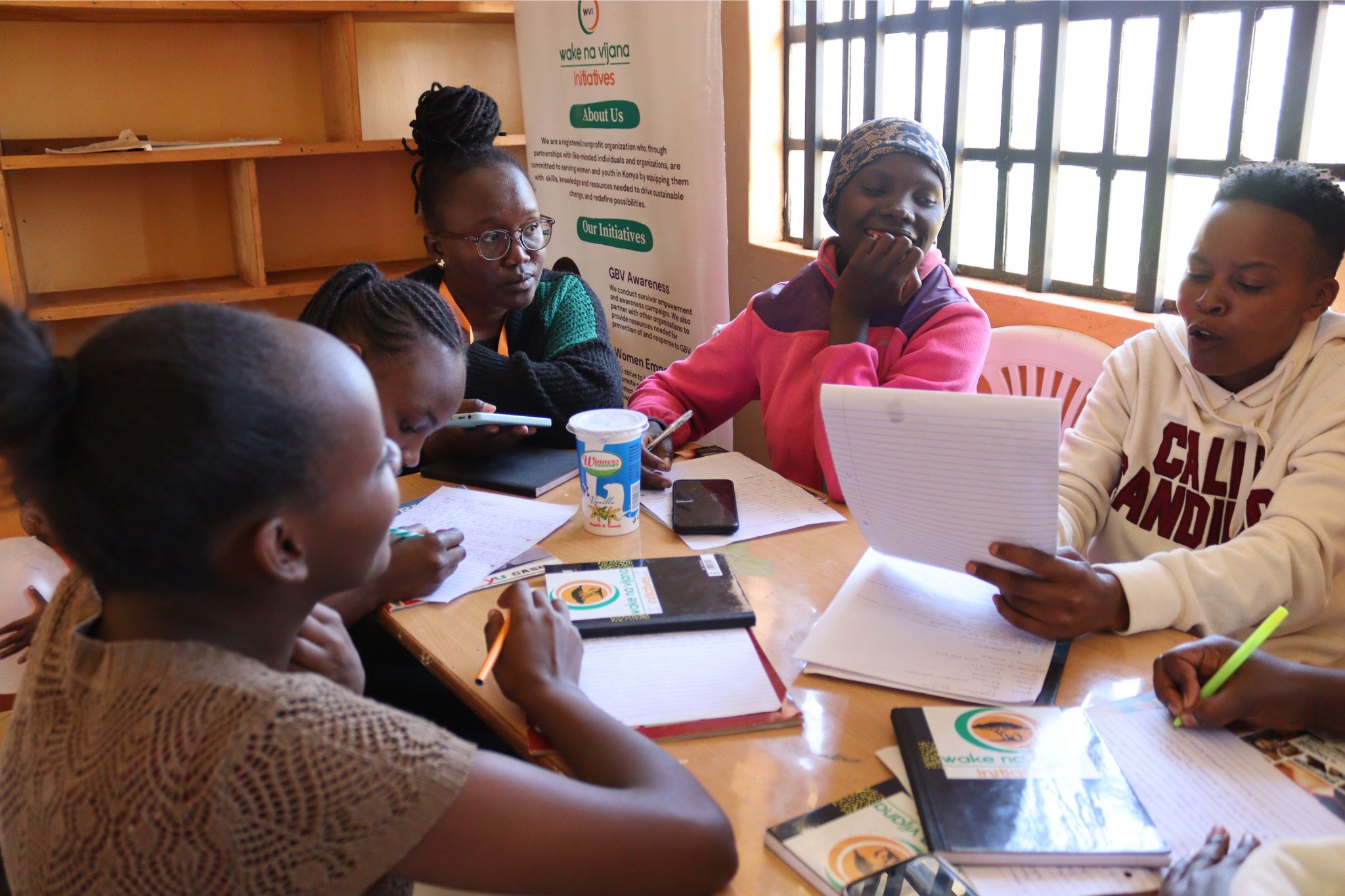







Reach for the Stars
Embracing Conflict Resolution
Conflict is a natural part of life, but how we handle it can profoundly affect personal growth and community dynamics. This is where conflict resolution comes into play—a vital skill that empowers youth and fosters healthier environments.
Why conflict resolution matters
Through our ongoing engagement with the Muchatha community participants, we have observed a growing trend toward the formation of groups, like ‘chamas’ which refer to a more accessible and flexible informal savings group that allows people to pool their money together for a variety of purposes. Others have also started coming together and opening up joint accounts in banks.
This shift toward collaboration is inspiring, but it also brings challenges that need to be addressed. Our recent session was tailored to tackle these emerging issues, emphasizing the importance of open communication to resolve any conflicts that arise. As they form groups and work together, it’s crucial that members can navigate potential conflicts effectively.
Cyrus, one of our participants and a dedicated boda boda rider (motorcycle taxi service rider), opened up about the challenges faced at the local boda boda station. He explained that one of the biggest issues is the price differences among motorcyclists, which often lead to heated disputes. “Sometimes, other riders lower their prices to attract more customers, and that causes problems for the rest of us,” Cyrus shared. “When a rider undercuts the agreed-upon rate, it only benefits them, but it puts everyone else at a disadvantage. Customers start favoring those with the lower rates, and tension builds within the group.”
But pricing disputes aren’t the only issue. Cyrus also pointed out that customers often have preferred riders, and if those riders aren’t available, they refuse to go with anyone else. The participants chimed in, suggesting that customers tend to prefer certain riders because other riders may exhibit disruptive behaviors, such as overspeeding or blasting loud music, which can affect their comfort and safety. Most customers, they agreed, would rather go with disciplined riders who offer a more pleasant experience.
Regarding the pricing issue, Jacinta, one of our participants, offered a solution. She recommended that boda boda riders should explain to their customers why they’re being charged 20 or 30 shillings less, especially if it’s a regular customer. They should also clarify the standard price for each route. This could help clear up misunderstandings and maintain harmony among both riders and customers.
The session came at a crucial time, especially after an insightful story shared by Peris, one of the participants during our Imarisha Wake program. Peris described how she had joined a chama, only to later discover that a fellow member had absconded with all the money the group had contributed. This unfortunate incident led to significant tension within the group, ultimately causing the chama to collapse.
This story served as a valuable lesson for everyone in the room, underscoring the importance of trust and proper management in such financial arrangements. During the session, we took the opportunity to advise our audience on how to avoid similar pitfalls. We emphasized the need to join chamas that have clear and well-established structures. Specifically, we recommended that participants look for chamas that have designated roles like treasurer, secretary, and chairperson, as these positions help ensure transparency and accountability. It’s also essential that the chama maintains proper records and minutes of meetings to safeguard the interests of all members.
In addition to these organizational elements, we stressed the importance of aligning the chama’s goal with one’s personal financial goals. Before joining, it’s critical to understand the group’s purpose and ensure it matches one’s expectations. Finally, we encouraged our participants to carefully review the rules that govern the chama. A set of clear guidelines will help prevent misunderstandings and ensure that all members are on the same page when it comes to responsibilities and expectations.
By taking these steps, participants can better protect their investments and avoid conflict.
The benefits of conflict resolution
Conflict resolution is more than just a skill; it’s a crucial life lesson that empowers young people to navigate their social worlds more effectively. One of the key takeaways from our workshop was the understanding that conflict can be a catalyst for growth. When managed well, it can strengthen relationships, encourage new ideas, and lead to positive changes within the community.
As we continue to work with the Muchatha community, we recognize that equipping youth with conflict resolution skills is vital for their personal development and the overall well-being of the community. By empowering the youth to navigate conflicts constructively, we are creating an opportunity for them to thrive both socially and economically.


